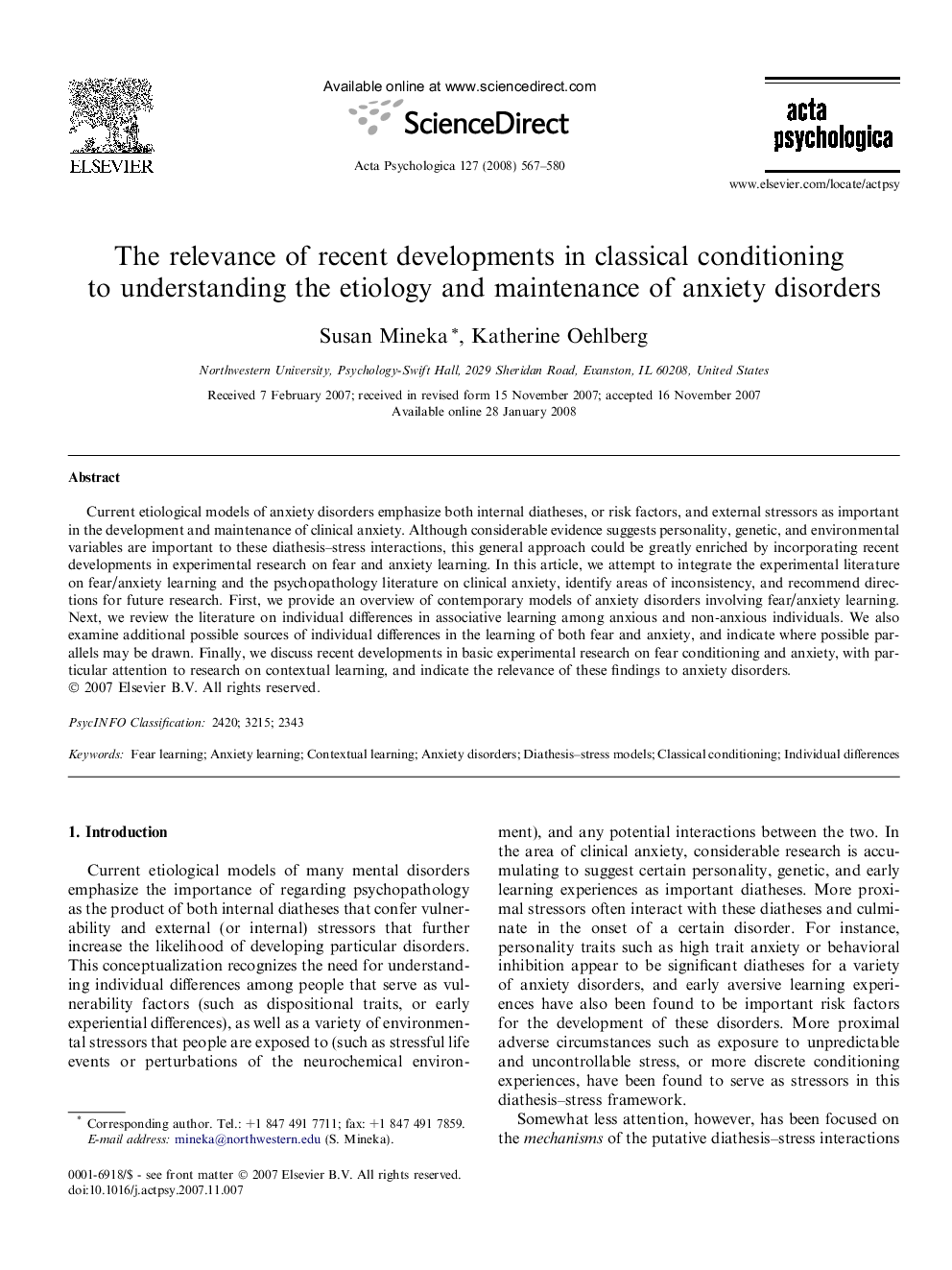| Article ID | Journal | Published Year | Pages | File Type |
|---|---|---|---|---|
| 920437 | Acta Psychologica | 2008 | 14 Pages |
Current etiological models of anxiety disorders emphasize both internal diatheses, or risk factors, and external stressors as important in the development and maintenance of clinical anxiety. Although considerable evidence suggests personality, genetic, and environmental variables are important to these diathesis–stress interactions, this general approach could be greatly enriched by incorporating recent developments in experimental research on fear and anxiety learning. In this article, we attempt to integrate the experimental literature on fear/anxiety learning and the psychopathology literature on clinical anxiety, identify areas of inconsistency, and recommend directions for future research. First, we provide an overview of contemporary models of anxiety disorders involving fear/anxiety learning. Next, we review the literature on individual differences in associative learning among anxious and non-anxious individuals. We also examine additional possible sources of individual differences in the learning of both fear and anxiety, and indicate where possible parallels may be drawn. Finally, we discuss recent developments in basic experimental research on fear conditioning and anxiety, with particular attention to research on contextual learning, and indicate the relevance of these findings to anxiety disorders.
